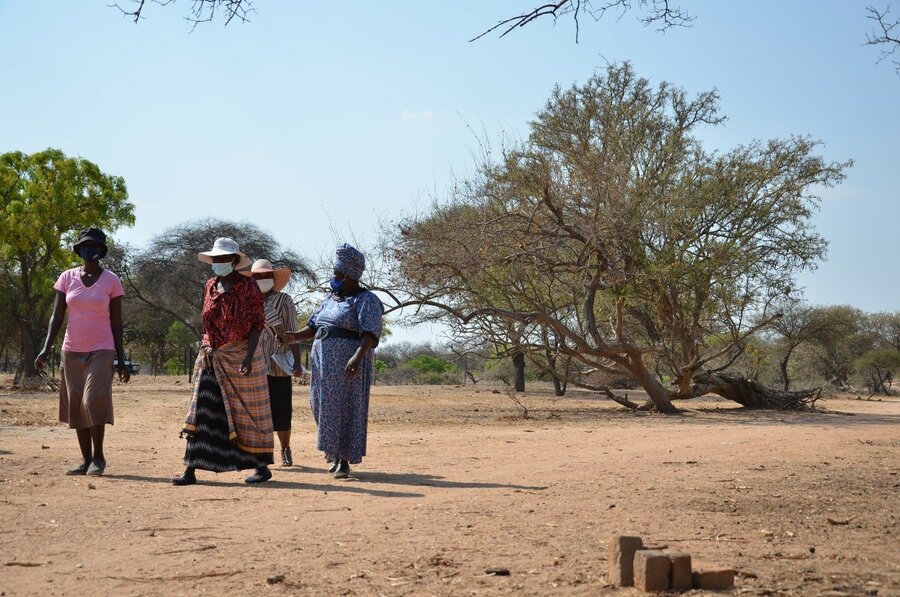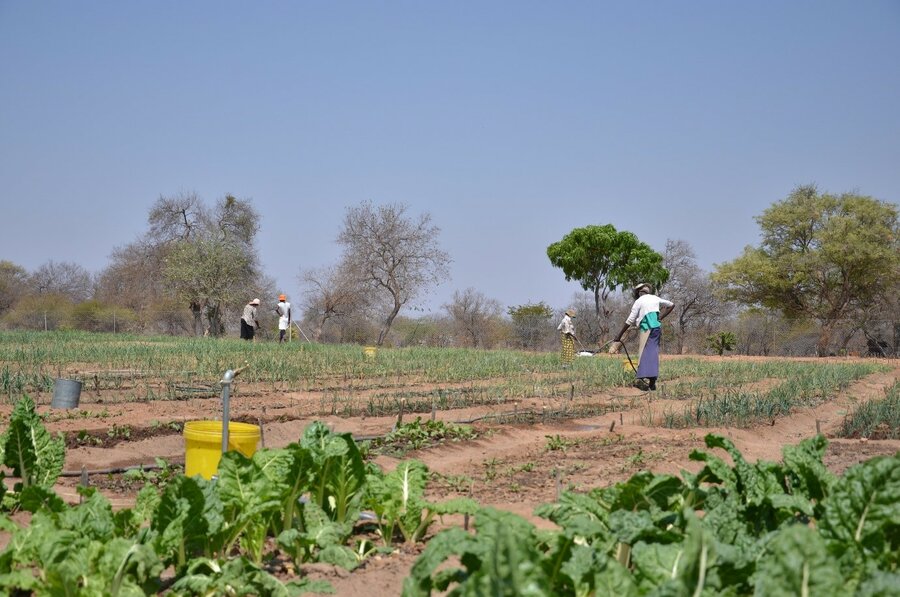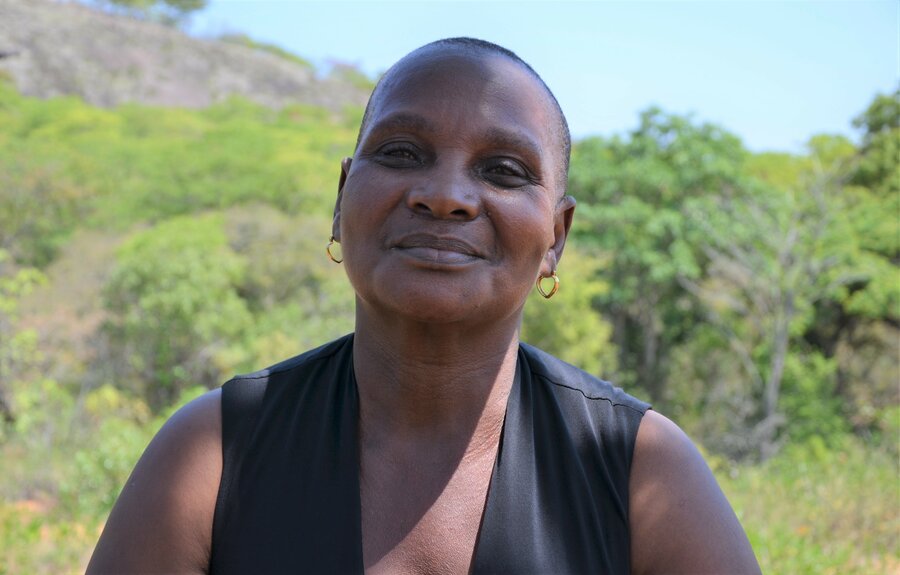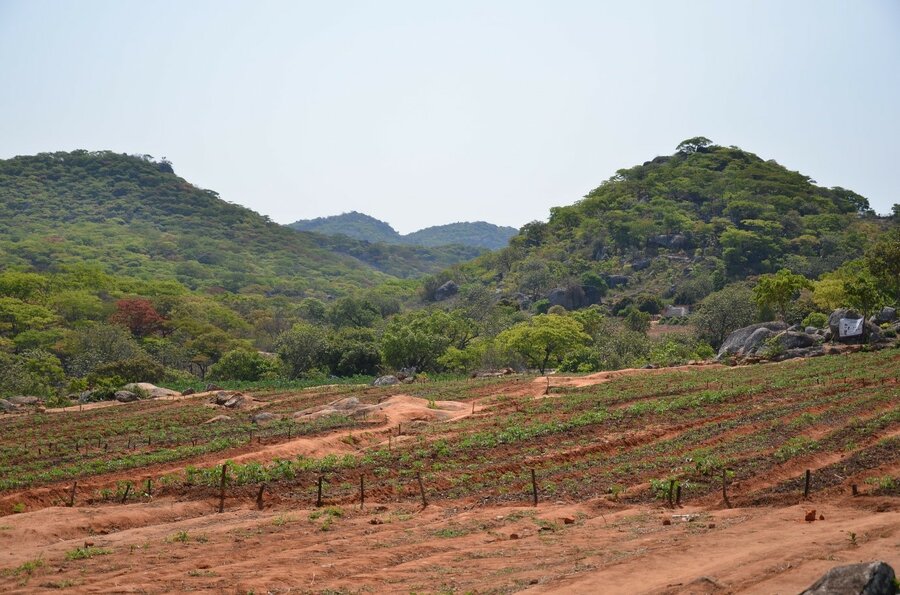Zimbabwe: How empowering women boosts community resilience
The Tonga people are an Indigenous group living in a remote rural area close to the Zambezi River, Zimbabwe, a country that has previously struggled with drought. To reach this rural community in Mola, Kariba district, we pass through hours of unsealed, vivid red dirt roads, and rural villages with small gardens of crops to sustain households.
Three women walk across the community garden. “We come here a lot,” says Nyaradzo, a mother of two. “The best thing is that it is so close to our homes, we feel very safe sending our children to fetch food from the garden.”
She adds: “We used to walk over 15 km to find food before this garden was built, and eat leaves that taste like okra, our children were always hungry”. Moving between villages, however, is risky for families living here.
“There are many animals here because of the national park, elephants, buffalo, leopards and sometimes lions,” says Nyaradzo. “Only yesterday a woman was attacked by an elephant in a nearby area.”
World Food Programme (WFP) support for this community kicked off in 2016 through the Food Assistance for Assets (FFA) Programme, starting with the rehabilitation of the nearby spring. With an abundant supply of water, establishing a collective garden helped to ensure food supply, with up to 52 households working to maintain the garden.
“This year we are growing new foods like butternut, watermelon, cucumbers, and trained to change the crops to protect the soil,” says Nyaradzo. “The children are not sick anymore, this is something we noticed since the garden was built.”
The women seem to be familiar with one another, and I ask what they have learned from the project. They describe developing a support network outside of the home for the first time, and how important it is to be there for each other. Gardening is an opportunity for them to talk about home issues, even difficult ones such as domestic violence.
“We just feel safer for many things. We are lucky to have this garden so close to our home, we don’t have to travel far for food. We also feel good contributing to our family.”
Organic gardens
The women in Matobo district, Bulawayo, ride their bikes to the community garden. The lead committee member, Tusiwe, is charismatic and larger-than-life. “We only started organic gardening after practising in a small area. Every week, we would get better with training. This is a learning centre for everyone,” she says.
Eventually, the committee (of 36 women and 24 men) agreed that organic farming would be healthier, use less water, be cost-efficient and better for the environment.

“This garden feeds over 50 households, that’s up to 200 people with a direct supply of food,” says Tusiwe. The FFA programme began in 2019, which aims to empower women and men through a community-building asset approach – where people themselves determine what is needed. “This equal participation is key to our empowerment.”

While over 80 percent of the produce is consumed directly, the remaining 20 percent of food is sold locally to markets. The group reinvests their earnings in other projects like broilers.
They share that sometimes, the act of giving extends beyond their circle. “We like to go out in the village and see who is in need. We give children food, clothes or even school fees,” one of the women shares.
No white elephant – R4 graduates
Four years ago, the lives of women in Gwatinyanya, Masvingo district, changed with the introduction of WFP’s R4 resilience programme. Chipo Makas, a remarkable mother of ten and chairperson of the committee, informs us “you don’t see a white elephant here”.

“Because of the drought, we did not have enough food during the lean seasons. The food we received from WFP during these periods helped us through difficult times,” says Chipo.
However, it was the skills they had learned as a committee they were more eager to share. “We don’t need food support anymore. We can do this on our own,” she adds. The group inform us, rather passionately, about the value of insurance to mitigate drought and how savings and lending have helped the women to secure more assets.”

Breaking the cycle of dependence for rural women is also important. “We would tell our girls that marriage is not a ticket out of poverty, but we had nothing to show them. Now we have something real for them to see and be part of, this is a big change,” says Chipo.
WFP’s rural resilience building projects in Zimbabwe are made possible with thanks to the support of USAID, Japan, France, China, Switzerland, Russia, the Green Climate Fund and the World Bank.
